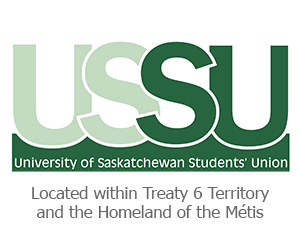
The University of Saskatchewan Students’ Union is gearing up to focus on student finances for this year’s provincial requests.
Ahead of this year’s provincial budget release, the union’s external affairs committee intends to lobby for the student loan grace period, student loans within the graduate retention program and the predictable tuition model.
Ryan O’Connell sits on the external affairs committee and is a university student councillor representing St. Thomas More College. He says it is important that the provincial government recognize students’ needs during the pandemic because students are “historically [in] a financially insecure designation.”
“It’s already been shown that this pandemic further throws people into the hole when they’re in an economically unstable situation,” O’Connell said. “If anything, they should always be focused on students, … making things more affordable and education more accessible.”
Samuel Papp, a second-year physiology and pharmacology student and a member-at-large on the USSU external affairs committee, says COVID-19 has highlighted student issues, such as poverty, that may not have been given as much attention otherwise.
“We’re hoping right now when so many students are really living in poverty because they don’t have jobs, maybe they’ll be able to see what we go through on a daily basis,” Papp said.
According to a study done by the Canadian Alliance of Student Associations, 75 per cent of Canadian students said that COVID-19 will impact their financial situation beyond 2020. Of those eligible for either the Canada Emergency Response Benefit or the Canada Emergency Student Benefit, 64 per cent did not think that the emergency response benefits would sustain them through the 2020 Fall Term or beyond.
Papp says that although there was a tuition freeze at the U of S for the 2020-21 academic year, it will still be difficult for students to know how much they should be paying in the future.
Although the students’ union has advocated for a predictable tuition model in the past, Papp says it has been difficult because of a “common issue” they encounter.
“Whenever we ask the university for something, it’s because our provincial government doesn’t give us enough money, and when we ask the provincial government, it’s the university,” Papp said.
“Especially in the time of COVID, it’s an exceptional circumstance, so we’re hoping that in this exceptional circumstance we’re able to work with the provincial government more [and] perhaps achieve more.”
O’Connell says that through smart research and knowing precisely how student loan funding works in the province, they hope to break the cycle of lacking money from the university and the provincial government.
“What we’re trying to do this year, to try to break that loop, is work within Saskatchewan’s Growth Plan and try to tailor it to what the province wants to do going forward and make it more worthwhile for them,” O’Connell said.
Although the past year has shifted people’s focus to vaccines, COVID-19 variants and reopening dates, Papp and O’Connell say that it is critical for students to still be prioritized during such a difficult time.
“Students are ultimately the future,” Papp said. “If the government does not give support to students, then we will either not be able to achieve our educational goals in university or we will be forced to leave the province for another province that might support us more,” Papp said.
O’Connell says that during COVID-19, the government needs to “double down” on their efforts to focus on students.
“I think the best thing for us to do is keep going forward with the type of asks and financial relief we want from them,” O’Connell said.
“Especially during this, we’re not going to bend the knee because we know things are hard, but keep up the pressure instead,” he said.
—
Fiza Baloch | Staff Writer